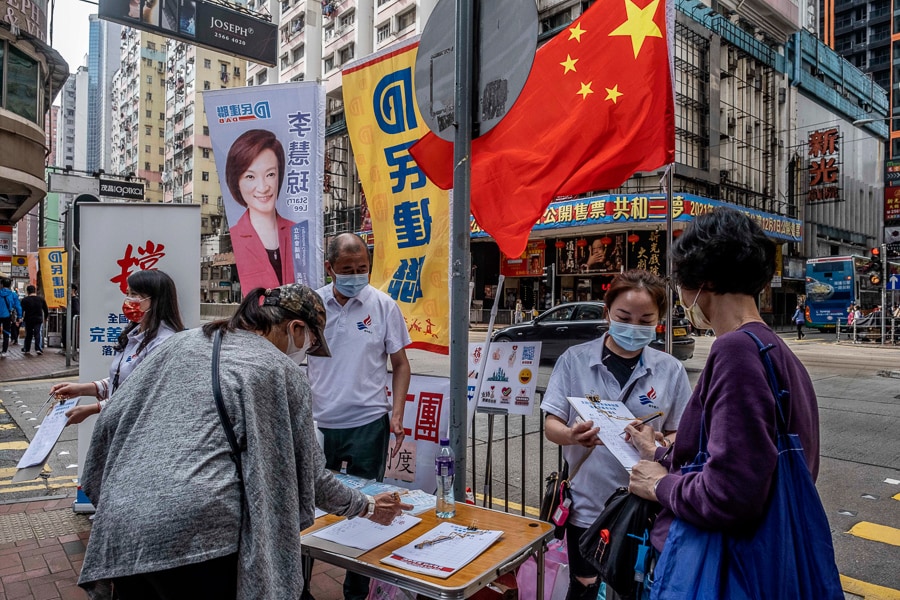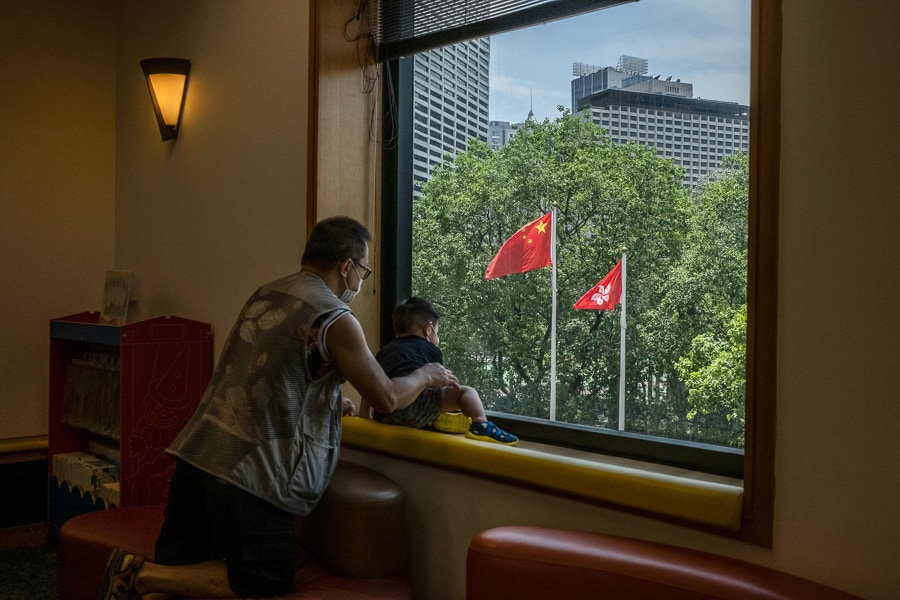
'A form of brainwashing': China remakes Hong Kong
The Chinese Communist Party is remaking the city, permeating its once vibrant, irreverent character with ever more overt signs of its authoritarian will
 Pro-Beijing activists collect signatures in support of overhauling Hong Kong’s electoral system, March 11, 2021. The very texture of daily life in the vibrant city is under assault as Beijing molds Hong Kong into something more familiar, more docile, with ever more overt signs of its authoritarian will; Image: Lam Yik Fei/The New York Times
Pro-Beijing activists collect signatures in support of overhauling Hong Kong’s electoral system, March 11, 2021. The very texture of daily life in the vibrant city is under assault as Beijing molds Hong Kong into something more familiar, more docile, with ever more overt signs of its authoritarian will; Image: Lam Yik Fei/The New York Times
With each passing day, the boundary between Hong Kong and the rest of China fades faster.
The Chinese Communist Party is remaking this city, permeating its once vibrant, irreverent character with ever more overt signs of its authoritarian will. The very texture of daily life is under assault as Beijing molds Hong Kong into something more familiar, more docile.
Residents now swarm police hotlines with reports about disloyal neighbors or colleagues. Teachers have been told to imbue students with patriotic fervor through 48-volume book sets called “My Home Is in China.” Public libraries have removed dozens of books from circulation, including one about Martin Luther King Jr. and Nelson Mandela.
Hong Kong had always been an improbability. It was a thriving metropolis on a spit of inhospitable land, an oasis of civil liberties under iron-fisted rule. A former British colony that returned to China in 1997, the city was promised freedoms of speech, assembly and the press unimaginable in the mainland, in an arrangement Beijing called “one country, two systems.”
But under Xi Jinping, China’s leader, the Communist Party has wearied of Hong Kong’s dueling identities. To the party, they made the city unpredictable, even bringing it to the edge of rebellion in 2019, when anti-government protests erupted.
©2019 New York Times News Service



 The Flags of China and Hong Kong fly outside the Central Library in Hong Kong, June 8, 2021. Public libraries have removed dozens of books from circulation, including one about the Rev. Dr. Martin Luther King Jr. and Nelson Mandela, as Beijing molds Hong Kong into something more familiar, more docile, with ever more overt signs of its authoritarian will; Image: Lam Yik Fei/The New York Times
The Flags of China and Hong Kong fly outside the Central Library in Hong Kong, June 8, 2021. Public libraries have removed dozens of books from circulation, including one about the Rev. Dr. Martin Luther King Jr. and Nelson Mandela, as Beijing molds Hong Kong into something more familiar, more docile, with ever more overt signs of its authoritarian will; Image: Lam Yik Fei/The New York Times



